
My Generation is the debut studio album by English rock band the Who, released on 3 December 1965 by Brunswick Records in the United Kingdom, and Festival Records in Australia. In the United States, it was released on 25 April 1966 by Decca Records as The Who Sings My Generation, with a different cover and a slightly altered track listing. Besides the members of the Who, being Roger Daltrey (vocals), Pete Townshend (guitar), John Entwistle (bass) and Keith Moon (drums), the album features contributions by session musician Nicky Hopkins (piano).

Time is the ninth studio album by English rock band Electric Light Orchestra, released in July 1981 on Jet Records. It is a concept album about a man from the 1980s who is taken to the year 2095, where he is confronted by the dichotomy between technological advancement and a longing for past romance. The record topped the UK Albums Chart for two weeks, though it attracted mixed reviews for its heavy use of synthesizers and stylistic shift away from the orchestral rock of previous ELO albums. It has since gained a cult following, particularly among retrofuturist enthusiasts.

Pete Droge is an American alternative/folk rock musician from Vashon Island in Washington State's Puget Sound.
Heartland rock is a genre of rock music characterized by a straightforward, often roots musical style, often with a focus on blue-collar workers, and a conviction that rock music has a social or communal purpose beyond just entertainment.
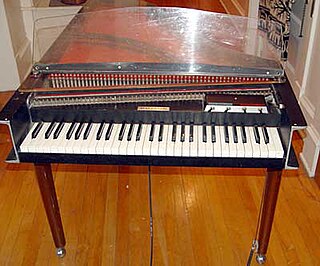
Baroque pop is a fusion genre that combines rock music with particular elements of classical music. It emerged in the mid-1960s as artists pursued a majestic, orchestral sound and is identifiable for its appropriation of Baroque compositional styles and dramatic or melancholic gestures. Harpsichords figure prominently, while oboes, French horns, and string quartets are also common.
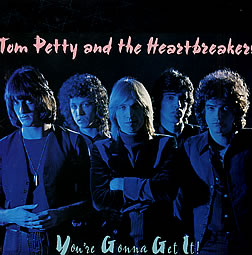
You're Gonna Get It! is the second studio album by the American rock band Tom Petty and the Heartbreakers, released on May 2, 1978, by Shelter Records. Originally, the album was to be titled Terminal Romance. Its design and art direction was handled by Josh Kosh. The album peaked at No. 23 on the Billboard Top LPs & Tapes chart in its release year, a higher position than its predecessor, Tom Petty and the Heartbreakers (1976).

Boulders is the debut solo album by English musician Roy Wood, recorded from 1969 to 1971 and released in July 1973 by Harvest Records. Wood began work on the album as a whimsical side-project away from his band the Move, and conceived it to explore numerous instruments he had collected in the 1960s but felt unable to use in the Move. Nonetheless, its release was delayed for several years due to his busy schedule with the Move, Wizzard and the Electric Light Orchestra. Apart from harmonium on one song played by John Kurlander, all the instruments on the album, including guitars, cello, saxophones, bouzouki, banjo and recorders, were played by Wood, who also wrote, arranged, and produced the whole record, in addition to providing all the vocals. The musician also painted the unfinished self-portrait on the cover.
Peter Stroud is a US guitarist best known for his work with Sheryl Crow, Don Henley, Pete Droge, and Sarah McLachlan. He is cofounder of 65amps, a company manufacturing guitar amplifiers.
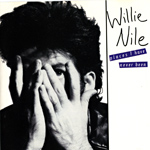
Places I Have Never Been is an album by the American musician Willie Nile, released in 1991. It was Nile's first album in 10 years, as legal and personal issues prevented him from putting out music. Nile supported the album with a North American tour.

"Babaji" is a song by English rock band Supertramp, written by Roger Hodgson and also credited to other band member Rick Davies. First released on their 1977 album Even in the Quietest Moments..., it was subsequently released in Europe and in Australia as the follow-up single to "Give a Little Bit".
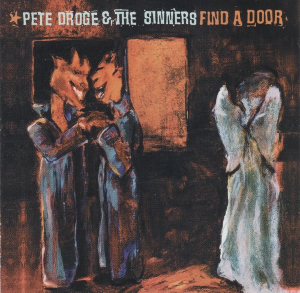
Find a Door is an album by the American musician Pete Droge, released in 1996. Droge supported the album by touring with the 1996 H.O.R.D.E. Festival.

Pictures from the Front is an album by the American musician Jon Butcher, released in 1989. It was Butcher's second album fronting the Jon Butcher Group. He supported the album with a North American tour.

Sleeping Star is the second album by the English musician Epic Soundtracks, released in 1994.
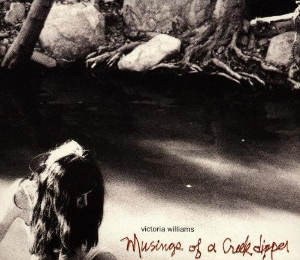
Musings of a Creek Dipper is an album by the American musician Victoria Williams, released in 1998. The album cover artwork is a photograph of Williams in an Oxnard, California, creek. Williams supported the album with a short tour, which included playing the Calgary Folk Music Festival.

One Left Shoe is the solo debut album by the American musician Steve Poltz, released in 1998. The first single was "Silver Lining". Poltz, at the time, expected to record again with the Rugburns, and considered One Left Shoe to be a "sensitive" folk excursion.
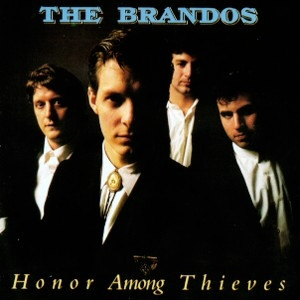
Honor Among Thieves is the debut album by the American band the Brandos, released in 1987. The first single was "Gettysburg", which was a minor hit on radio and MTV.
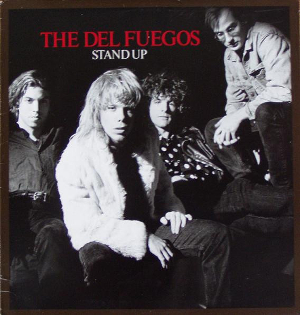
Stand Up is an album by the American band the Del Fuegos, released in 1987. The band supported the album by touring with Tom Petty and the Heartbreakers and the Georgia Satellites. The album peaked at No. 167 on the Billboard 200.

Surrender to Jonathan! is an album by the American musician Jonathan Richman, released in 1996. Richman was the first musician signed to Neil Young's Vapor Records. Richman supported the album by touring with a full band.

Crooked Line is an album by the American musician Nils Lofgren, released in 1992. It was his second album for Rykodisc. The cover art is by Ralph Steadman.

Drift is the debut album by the Irish band the Devlins, released in 1993. It was delayed due to organizational changes at Capitol Records; a rerelease campaign also followed in 1994. The first single was "I Knew That". The band supported the album with a North American tour that included shows with Sarah McLachlan. Drift was a modest commercial success.


















